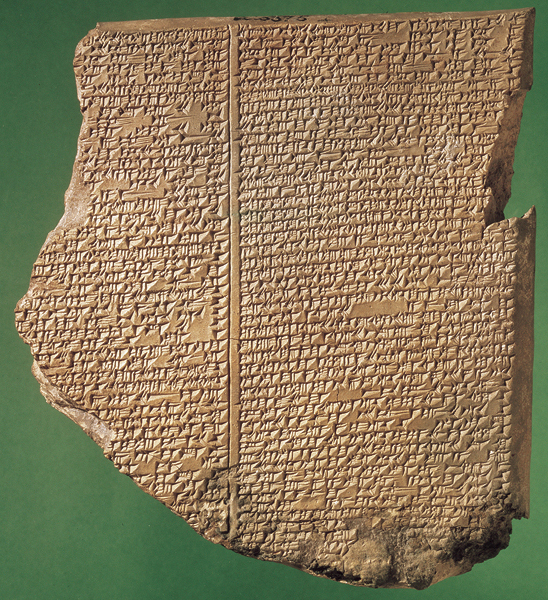Image Details

British Museum
The exploits of Gilgamesh are chronicled in this clay tablet from Nineveh. Fragments of this narrative epic masterpiece have survived in a Sumerian edition from the beginning of the second millennium B.C.E., along with Akkadian, Babylonian, Hittite and Hurrian versions. Some scholars hold that Gilgamesh and Ecclesiastes share the same literary genre, that of fictional royal autobiography. In this view, Ecclesiastes is a fictional autobiographical narrative of a famed king who treats us to his meditations on life and death; the Mesopotamian epic recounts the deeds of the adventurous hero-king Gilgamesh. Author van der Toorn maintains that the comparison is false: The autobiographical elements in Ecclesiastes are limited to the first few chapters; moreover, a king’s meditations on life’s futility cannot strictly be called autobiographical. As for matters of form, in Mesopotamian royal autobiographies, the moral is told through a story; Ecclesiastes, however, is all moral and no story.
